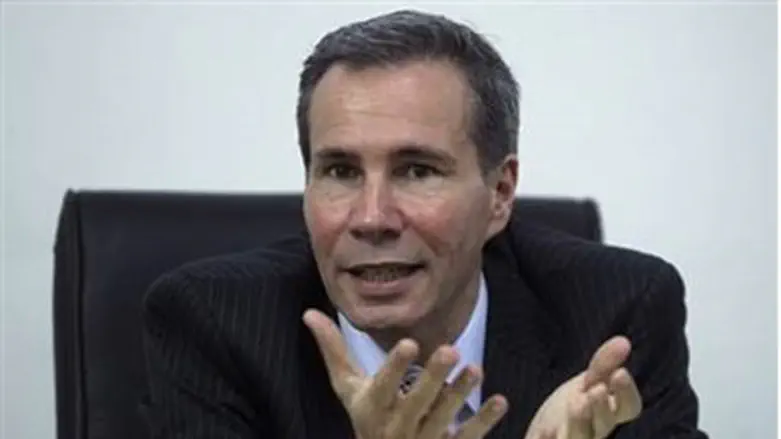
Argentine prosecutor Alberto Nisman could not have committed suicide, a colleague of his insisted Tuesday morning - and was probably murdered by terrorists ahead of a probe into the 1994 bombing of the Argentine-Israeli Mutual Association (AMIA) .
"The local press is presenting this as murder," Professor Arie Kacowicz, an expert on South American Affairs at Hebrew University of Jerusalem, stated in a special interview with Arutz Sheva. "He was supposed to present a report in which he accused the incumbent president covering up Iran's involvement in the attack in Argentina."
The predominant feeling, he said, is that of "returning to the dark days" of military rule in Argentina, before the country's democratic period.
Kacowicz added that, in his view, there is "no way" Nisman committed suicide in light of the circumstances surrounding events - and several of his colleagues agree.
"We all express the same shock," he said.
"Obviously the accusing finger will be directed towards the government. I do not know [for sure] if the president was involved, but the report had a clear reference to the role of the intelligence services of Argentina in the case," he continued. "His report accuses the President and the Foreign Minister of striking a deal two years ago with the Iranian government in an attempt to hide the involvement of Iran in an attack, according to what we know, by Hezbollah in partnership with Iran."
"Probably Argentina wanted to get discounted oil in Iran and Argentina and Iran came to an agreement that they would investigate together in a seemingly objective process what happened in '94," he theorized. "Since then, they have not deciphered what happened during the incident, despite Interpol issuing warrants against some Iranian representatives."
Nisman accused top officials of deliberately hiding Iranian involvement in the affair, he explained - making him a political risk. Kacowicz added that the circumstances of Nisman's death and the timing - he was found shot on the day he was supposed to testify in the case - are "transparent in terms of the timing and the way it was performed."
"I interviewed him three years ago for a study I did on three borders, the borders of Argentina, Brazil and Paraguay - the area from which the terrorists who carried out the attack most likely entered from - and he gave an impression of a very impressive and very confident man," Kacowicz said. "Not the type who would be going to commit suicide, and especially not on a day when he has to testify."
As for the possibility that the event could be described as the elimination carried out by the Iranians and officials related to the President, Kacowicz stated that the "conspiracy theories are immeasurable."
He added that it should be noted that Nisman was well-known on the international scene, and had received recognition and accolades from the United States. As such, he explained, Nisman's role in the high-profile case could have, in its own right, damaged Argentina's diplomatic relations on the international scale.
Kacowicz also said that he has never seen an assassination carried out on such a high-profile official before.
"There were incidents, but not at the level of the military regime," he said. "I remember a case a few years ago, a case of a journalist who disappeared after exposing corruption, but it has become a rare phenomenon and certainly when it comes to such a terrible event like the attack on the Jewish community in Argentina."